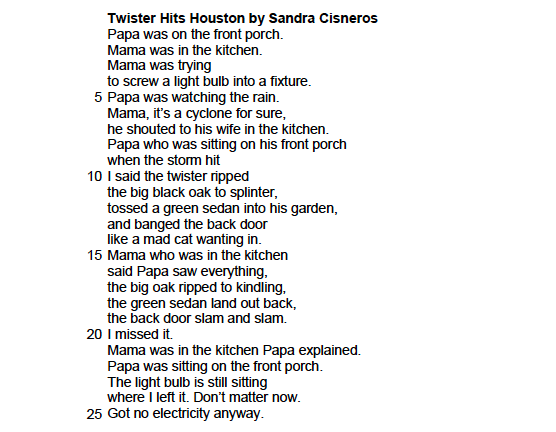
At times he felt melancholic and pressed by work, but he still wrote poems about his students and parishioners and saints. Gerard Hopkins, S.J.” then worked in a variety of Jesuit schools and parishes in England and Scotland. In 1877 Hopkins was ordained a priest at St. Other sonnets show Hopkins’ many talents in this year of genius: “Spring,” “The Sea and the Skylark,” “The Caged Skylark,” “In the Valley of the Elwy,” “Pied Beauty,” “The Lantern out of Doors,” and “Hurrahing in Harvest.” Clearly, Hopkins loved nature, and-notably in “Pied Beauty”-praises God as found in a variegated nature and even in the humble instruments of human labor. “As kingfishers catch fire” puts into poetry Scotus’s theory of “thisness”: “Each mortal thing… / Selves–goes its self, myself it speaks and spells.” “The Windhover” first describes the smooth flight of a bird, then his struggle against a strong wind, then presents this kestrel as a medieval knight and a parallel to Christ. “The Starlight Night” sees the bright stars as little boys sitting on the ground with arms wrapped around their knees, then as towns, and then as old castles and diamond mines and “elves’ eyes” and cracks of light that let a viewer look into heaven (!). “God’s Grandeur” presents God’s presence in the world as both a sudden bright electric spark and as tasty olive oil, then grieves about industrial pollution, yet finds the Holy Ghost caring for the world just as a mother-bird cares for and warms her egg. In these months of poetic genius, 1875-77, Hopkins also wrote eleven brilliant, music-filled sonnets set near St. Truly original, “The Wreck” is now recognized as one of the greatest odes in English. Deeply moved by a shipwreck in which five exiled nuns drowned, at his rector’s suggestion he wrote perhaps his greatest poem, “The Wreck of the Deutschland,” a 35-stanza, deeply original ode about meeting God in terror/joy: the first ten stanzas told of his conversion at Oxford, the rest told of the five drowned nuns, exiled from their native Germany by Bismarck’s anti-Catholic Kulturkampf, who were sailing on the Deutschland to a new assignment in America. Beuno’s in 1875 his poetic talent flowered into genius.
#Sonnet examples by students about family free#
Happily, in his early Jesuit years Hopkins again felt free to write poems (some suggested by his Jesuit superiors), and at St.

Beuno’s College in beautiful North Wales. Then, after a year of teaching young Jesuits in London, in 1874 he went to study theology at St. But before becoming a Jesuit he resolved to give up writing poetry, thinking (mistakenly) that writing poetry would distract him from his Jesuit and priestly life.Īs a Jesuit, Hopkins first learned prayer and spirituality in London’s Roehampton, then studied philosophy in Lancashire where he discovered and came to love the philosophy of the medieval John Duns Scotus and his theory of individuality (“ haecceitas,” or “thisness”), individuality being the unique selfhood of every being: for example, that one robin over there sitting on a branch is a totally different self from another robin sitting on the same branch. On leaving Oxford in 1867, he taught for a year at Newman’s school in Birmingham, then in 1868 entered the Jesuit Order-the Society of Jesus-to begin studies for the priesthood. At Oxford he had a religious crisis, and with the advice of John Henry Newman became a Roman Catholic in 1866. (His son Gerard later wrote two rather long shipwreck poems!) In 1852 his family moved to London’s leafy Hampstead, and young Gerard wrote poetry as a schoolboy at the Highgate School and in 1863 continued writing poetry at Oxford, where he made lifelong friends, especially Robert Bridges, his best friend and later a physician and Poet Laureate. Educationīorn in 1844 to a comfortable Anglican family in the London suburb of Stratford, Essex, he was the oldest child of nine, and his father, Manley Hopkins, owned a firm that insured ships against wreck and damage.

As a priest he loved his fellow Jesuits, his students, and his parishioners, and as a poet he loved his creativity and the words and images and rhythms and sounds of his poems. He loved his family and friends and God, he loved music and sketching, he loved hiking and swimming, and he loved beauty, nature, and the environment.

At Oxford University he loved his studies in Greek and Latin and won a brilliant “First” in his final examination.

As a boy he loved to climb a tree in his family garden in London and look up at the sky and down at the earth. He was a man of passion and he was a lover, this poet Gerard Manley Hopkins.


 0 kommentar(er)
0 kommentar(er)
